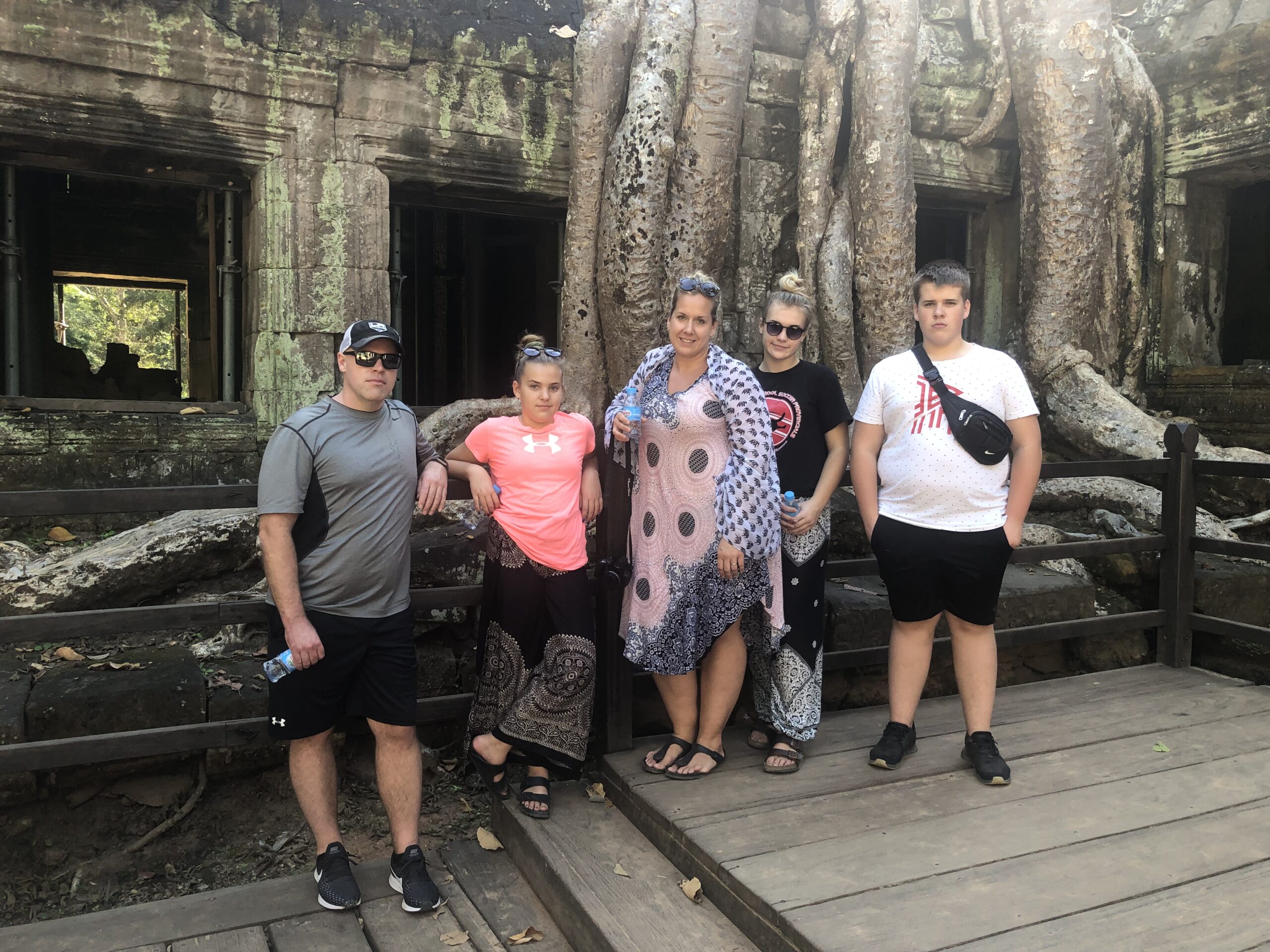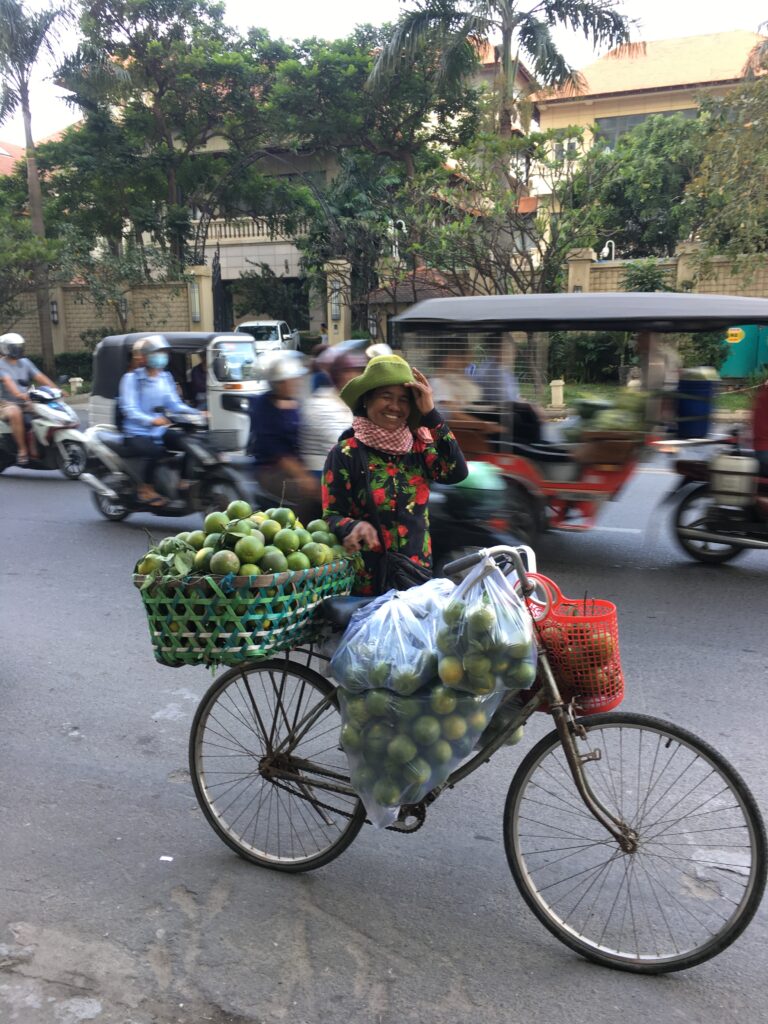The Kuhl Family, A History of Giving

In December, the Kuhl family visited Cambodia, eager to learn more about the country’s history
and culture. As long-time iDE supporters and owners of a large-scale potato farm in Winkler,
Manitoba, they were interested in meeting farm families working with iDE Cambodia. Their
trip also fulfilled a desire for a deeper connection to iDE, an organization their family has
supported for three generations.
Phnom Penh – For the Kuhl family, Cambodia quickly unfolded as a land of contrasts. A Rolls-Royce dealership beside a shack. Chaotic traffic that revealed its own set of rules. Enjoying the temples at Angkor Wat and visiting a genocide museum, dedicated to those killed by the Khmer Rouge regime. Meeting people who had lost family members at the hands of that regime and being inspired by the optimism of those same people.
“History and context were really important to us,” says Marlon. “Throughout this trip, we wanted to understand the past and how that shaped the situation today.”
The family quickly immersed themselves, visiting the Tuol Sleng Genocide Museum. Now a memorial and education centre, the site was once a prison used for torture by the Khmer Rouge, which ruled Cambodia from 1975 to 1979.
While the figure is often disputed, an estimated 1.7 million people died from starvation, execution or overwork.
“It’s hard to find a family that wasn’t affected by the genocide,” says Marlon. “We heard so many stories from people we met. But we were struck by how optimistic and forward thinking everyone is. They don’t dwell on the past. They grab hold of a small opportunity and can make a big impact for their families.”
Some of these families included farmers working with iDE Cambodia to improve their operations. The Kuhl family toured five farms that are learning how to use higher-quality seed, how to create budgets and business plans, proper food handling techniques, safe use of fertilizers as well as marketing.
“The farmers we met were very welcoming, very humble,” says Leala. “They want to show you their progress and they’re proud of what they’ve achieved.”
Marlon adds, “With all of the improvements, it’s possible for them to pay back their loans on the first crop. As a farmer, it’s mind blowing that they could get their investment back so quickly.”
The Kuhls also toured Hydrologic, an iDE-owned business that makes household water filters and operates as a completely self-sufficient social enterprise.

“As a donor, it’s exciting to see this business no longer needs donor support. Hydrologic is very compassionate towards its employees. They could automate some things but this would cost someone their job,” says Leala.
Compassion for hardworking farmers experiencing poverty is what led John Kuhl, Marlon’s grandfather, to support iDE Canada over three decades ago. He continues his support today.
“My grandfather started donating to iDE in the early 80s when the organization was just finding its way,” Marlon says. “We continue to support the organizations that were important to him and we understand why he is so passionate about iDE and the difference it makes.”
Throughout their travels, the Kuhls hoped to inspire their children and each had a favourite moment or place: something that inspired them or made them think about topics ranging from injustice to farming practices in Canada.
“Our kids see our business and our lifestyle. We don’t want them to think life is all about making money. It’s about finding ways to give back. I learned that from my grandfather and my father,” Marlon says.
For the Kuhls, their trip fulfilled a desire for a deeper connection to iDE, a not-for-profit their family has supported for three generations. They left with a better understanding of Cambodia, as a place with a complicated past, filled with people determined to write their own future.
